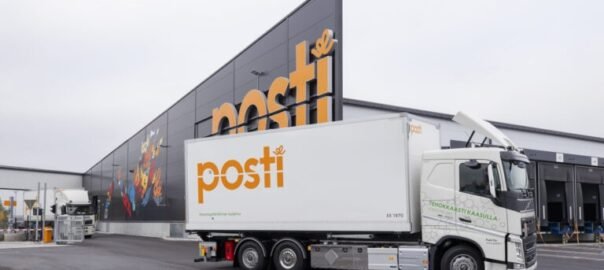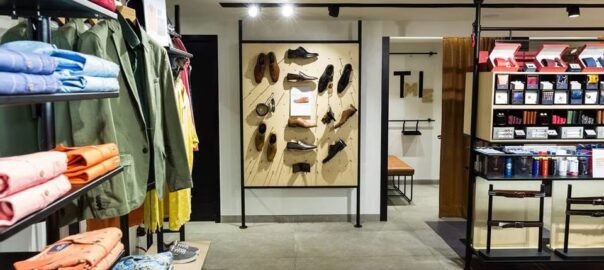The challenges of dealing with returns are huge for e-commerce retailers and logistics operators alike, as returns continue to increase despite best efforts to reduce them. In December 2024, a report from the National Retail Federation showed that retailers in the US estimated that 16.9% (US$890bn) of their annual sales were returned last year. In the UK, online returns hit £27bn (US$34bn) in 2024, according to a recent report from Retail Economics.
Investment in managing this problem is high. Fortune Business Insights has previously estimated that the global reverse logistics market will grow from US$768.59bn in 2023 to US$1.17tn in 2032. The huge growth in less than a decade shows that logistics operators are serious about helping retailers better manage the problem – and investment in technology is key to their ability to do so.
Understanding the returns challenge
There are many reasons for returns, including customers being dissatisfied with what they have ordered, ordering multiple sizes of clothing with the intention to return (known as bracketing), abusing returns policies, or simply changing their minds about what they have ordered.
Retailers and their logistics partners need to quickly understand which of these returns reasons are being used (and whether they are truthful), identify whether products are fit for resale and then route them into the supply chain as quickly as possible for resale or disposal by other means to maximize their worth.
The costs incurred during this process are crippling retail businesses. “For retailers, the cost of returns is about far more than the price of sending a parcel back,” explains Marko Kiers, chief commercial officer at ReBound. “The hidden costs, such as time spent managing carriers, handling customer service queries and warehouse space for the piles of returned items, all add up. The value of items can also come down in the time it takes for a product to be returned to stock and sold to another customer.”
Tech investments
Technology can of course help streamline returns management. Tony Sciarrotta, executive director of the Reverse Logistics Association (RLA), explains, “Artificial intelligence is being used to analyze return reasons, assess product conditions and determine whether an item should be resold, refurbished or recycled, while smart return labels and QR codes provide visibility into tracking and processing returned goods.”
Kraig Foreman, president of e-commerce at DHL Supply Chain, believes that technology plays a crucial role in the returns process because it affects almost every area of the reverse supply chain. “Key areas include providing visibility to initiation and inbound transportation data, improving operational productivity through automation, enhancing the speed and accuracy of credit back to customers and performing advanced analytics to deliver actionable insights. These insights can maximize value recovery, optimize inventory, drive continuous improvement and even reduce returns,” he reports.
The need to monitor where returns are in the process is crucial and has led to the emergence of returns management platforms. “Integrated with warehouse and order management systems, returns management platforms are central to this transformation, enabling real-time tracking of items as they move through the returns pipeline,” confirms Jerrad Hampson, managing director at Liberty Jai, which is working with returns management platform supplier At Last.
Finding new partners
Many logistics suppliers are investing in third-party suppliers that already have the tech they require. “There is a growing recognition of the value that challenger brands and startups bring to the table,” continues Hampson. “These smaller, agile players are often better equipped to innovate and respond quickly to the specific needs of retailers. Unlike legacy providers, challenger companies focus on bespoke solutions and cutting-edge technology. This combination allows them to address unique retailer pain points and align with long-term goals such as sustainability and advanced data integration.”
Logistics giants are realizing such value. UPS is a year into its integration of Happy Returns, and in January 2025, DHL Supply Chain announced it had strengthened its returns offer with the acquisition of Inmar Supply Chain Solutions. According to DHL, the deal made it the largest returns processing provider in North America.
“The acquisition brings a wealth of experience, technology and returns-specific services to DHL Supply Chain that enhance our portfolio of capabilities,” explains DHL’s Foreman. “These include a team of knowledgeable returns experts, a national network of multiclient returns centers, a proprietary returns management software platform that processes more than 500 million items annually and many specialized reverse logistics services including recall management, product remarketing and regulatory compliance capabilities.
“Because moving returned products quickly back out into the market to optimize value is critical, we plan to integrate all these capabilities with DHL’s fulfillment services to create a new standard in the reverse logistics industry.”
Consumer habits
The need to improve the efficiency of the returns process isn’t just important to maximize resale value and reduce costs – it’s also a key factor in a customer’s choice of retailer in the first place.
“Our data shows that 67% of customers check a returns policy before completing a purchase,” says ReBound’s Kiers. “Features shoppers look for include an easy way to initiate returns, such as user-friendly return portals, convenient options to send items back and quick refunds. Customers are used to real-time tracking of deliveries and expect the same clarity for return status too.”
For a long time, this process has been free to customers – despite the immense cost to retailers. But this is now changing as retailers – for economic and environmental reasons – introduce paid online returns. This is particularly evident in the fashion industry, where returns are highest and retailers aim to discourage over-purchasing. They are also rerouting items to stores where returns remain free, meaning goods can be processed and refunds given more quickly.
In the UK, Zara was among the first to introduce paid-for online returns in 2022. By 2024, the Which? consumer organization reported that of the top 20 biggest UK online fashion retailers, more than half no longer offered free postal returns.
The expansion of paid returns
Paid-for returns are an emotive subject. According to the NRF report, more than three-quarters (76%) of consumers said that free returns are a key factor when deciding where to shop. More than two-thirds (67%) said a negative returns experience would discourage them from shopping with a retailer again.
Linda Ellett, head of consumer, retail and leisure for KPMG UK, argues that returns abuse by some customers means it’s no surprise that some retailers are responding by withdrawing non-store free returns, but it’s a big step in a market where some competitors aren’t following suit.
She believes that technology investment can help deliver an alternative to ending a free postal returns service: “One where customer data is better utilized to categorize customers into those making genuine returns choices versus the unprofitable serial returner cohort – who are costing the business through the scale and regularity of their returns,” she says.
This will be important for future loyalty. “As tech evolves, including AI, the ability to target those taking advantage of free returns policies will improve and will help retailers reduce the risk of losing those who could become a lifetime shopper and are just gradually becoming accustomed to the brand’s sizing and fit. Tech will also help assess seasonal and demographic analysis of returns data, making it more predictive and thus managing stock levels to allow for returns,” she adds.
Smooth returns and fast refunds
In the meantime, for those retailers that have decided to end free online returns, investment in technology to enable an improved returns process is even more important. “A smooth returns process with a fast refund is crucial to helping customers adjust to the end of free returns,” comments Stijn Meeus, managing director of marketing at FedEx Europe.
Careful explanation also helps, according to RLA’s Sciarrotta. “Returns policies that set up-front expectations and highlight the benefits of a paid return system can help facilitate consumer acceptance,” he says.
Reducing friction is key. According to the NRF report, 84% of consumers are more likely to shop with retailers that offer no-box/no-label returns and immediate refunds. DHL’s Foreman believes the popularity of package-free drop-off options is no surprise as it’s a win-win for all. “The consumer gets their refund faster without printing labels or wrestling with packaging, and the retailer can consolidate shipments to reduce transportation costs,” he explains.
UPS’s 2024 purchase of reverse logistics specialist Happy Returns from PayPal was driven in part by the company’s return bar locations in the US, where customers can drop off their returns without a label or box. Refunds or exchanges are approved instantly and the goods are shipped to where they need to go.
According to UPS CEO Carol B Tomé, “By combining Happy Returns’ easy digital experience and established drop-off points with UPS’s small package network and footprint of close to 5,200 The UPS Store locations, box-free, label-free returns will soon be available at more than 12,000 convenient locations in the US.”
Data-driven collaboration
The NRF report shows how much of a priority returns investment is for retailers, with more than two-thirds (68%) prioritizing upgrading their returns capability this year. For many retailers, it’s about working closely with logistics partners to manage the reverse logistics process and understand the returns data it generates.
“Data from reverse logistics software is essential for both retailers and logistics operators,” says FedEx’s Meeus. “For retailers, return data provides valuable insights into product quality, pricing, customer expectations and even website accuracy – helping them refine product offerings and prevent future returns. For logistics operators, it enables better volume forecasting and operational efficiency. Real-time tracking, proactive problem-solving and clear communication all play a role in managing returns smoothly.
“By leveraging these insights, retailers can improve the overall customer experience, while logistics partners can optimize workflows to handle returns more effectively.”
And, as mentioned previously, customers can be turned off by retailers that haven’t got their reverse logistics options in good shape to make returns as seamless and convenient as possible. “They want flexible options – digital labels, easy drop-off locations, package-free returns and even at-home pickups – all designed to simplify the process and speed up refunds or replacements,” adds Meeus. “Transparency is also key. Automated notifications and real-time tracking keep customers informed and build trust. In today’s e-commerce-driven world, convenience, flexibility and clear communication aren’t just perks – they’re expectations that drive loyalty and repeat sales.”
Educating the customer
Data can also be used to educate customers, which may lead to reduced returns, according to ReBound’s Kiers: “Logistics partners can help by educating customers on sustainable returns and responsible shopping behaviors that can foster a cultural shift toward more intentional purchasing and returning habits.”
Meeus believes collaboration between retailers and logistics partners is essential to drive consumer change around returns. “Retailers, being on the front lines, can gather valuable, real-time feedback on evolving customer expectations,” he explains. “By working together to aggregate this insight, they can co-create innovative return solutions that meet emerging demands – whether that’s faster processing, more drop-off options or label-free returns. Leveraging real-time data effectively is key, but accuracy and consistency across systems are crucial. With the right technology and seamless data integration, logistics partners can help retailers implement smarter, faster and more convenient return experiences that align with consumer needs.”
All this means that the reverse logistics process has changed for good, according to Liberty Jai’s Hampson: “Reverse logistics is no longer just about getting products back into the supply chain – it’s about adding value at every stage of the process,” he concludes.
Spotting return fraud
As well as improving the returns process, investment in technology and automation can help retailers spot and manage return fraud. According to the 2024 Consumer Returns in the Retail Industry report by Appriss Retail and Deloitte, US retailers face a US$103bn loss due to fraudulent returns and claims, which accounted for 15% of all returns in 2024.
Return fraud can take a number of guises, including customers shipping back different goods as they try to fool the system. “We’ve seen extreme cases where incorrect items such as bottled water or old books have been returned in place of brand-new shoes,” explains ReBound’s Marko Kiers.
Tony Sciarrotta of the Reverse Logistics Association argues that technology tools such as AI, automation and tracking can enable retailers to implement stricter validation measures while still maintaining a smooth customer experience. “Technology can help identify return patterns and flag suspicious activity, such as high-frequency returners, returns of used or counterfeit items, or refund requests without product returns,” he asserts. “Serialized tracking allows retailers to confirm a returned product was purchased from the retailer and not a counterfeit or a stolen item, while smart return labels and QR codes also help authenticate returns by linking them directly to the customer’s purchase history.”
A combination of technology, such as digital returns data, and human interaction, such as physical checks at local returns hubs, can also help combat fraud and enable fast refunds without genuine customers being made to feel like criminals.
At DHL Supply Chain, Kraig Foreman explains that for products such as apparel, the company’s returns management software displays photos of the expected item, which the returns processor can compare with the actual item received, alongside instructions on how to identify certain characteristics to ensure it’s not a fake. “For high-value luxury goods, high-resolution scanning technology can be used to compare the item received against a photo that was taken of the item before it was sold. Tech devices are powered up and plugged in to diagnostic testing equipment that can read serial numbers and consult manufacturer databases in real time to validate authenticity and chain of custody,” Foreman notes.
“Return fraud is a growing challenge, and technology will play a crucial role in addressing it,” asserts Stijn Meeus at FedEx Europe. “There is so much data out there that highlights the sheer scale of the issue. AI and other advanced analytics tools will likely help retailers detect patterns of fraudulent behavior, from wardrobing [buying a garment to wear once and then return] to receipt fraud. As return policies evolve, leveraging tech to spot and prevent abuse will be key to protecting both retailers and honest customers.”
Royal Mail transforms e-commerce returns with Stamp Free
In February, digital shipping company Stamp Free announced a new partnership with Royal Mail in the UK to offer a seamless, efficient and user-friendly returns experience using the company’s AppFree platform.
Royal Mail customers can now send their e-commerce returns quickly and easily using WhatsApp. Shoppers simply initiate the return by sending a message on WhatsApp or scanning a QR code that launches WhatsApp. They then log their return details via WhatsApp, receiving either a QR code for in-person drop-off or a printable label for their parcel.
Royal Mail processes the returns through drop-off points or doorstep collection – with all tracking updates still self-contained in WhatsApp, giving transparency and peace of mind during the return journey.
“We’re thrilled to partner with Royal Mail to bring this innovative returns solution to the market,” said Hugh Craigie Halkett, CEO and founder at Stamp Free. “By leveraging the power of WhatsApp, we’re making returns as effortless as sending a message to a friend. Together, Stamp Free and Royal Mail are redefining the way e-commerce retailers approach returns, offering a service that is not only efficient but also customer friendly.”
Stamp Free is currently developing integration capabilities with other universally adopted messaging apps such as iMessage and Facebook Messenger.
Author Credits- Hazel King, Parcel and postal technology INTERNATIONAL










